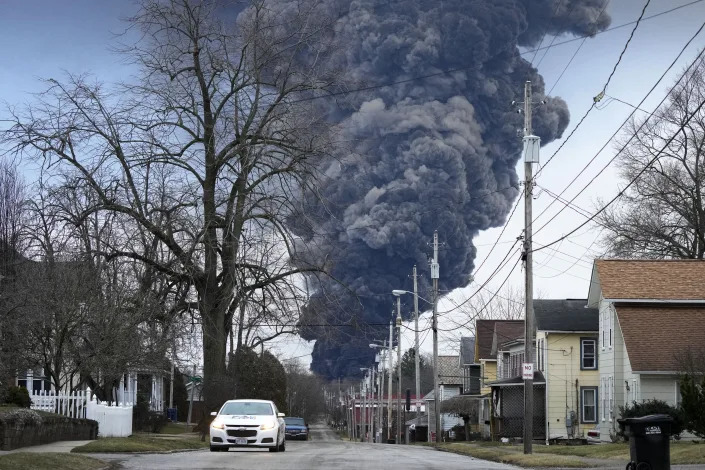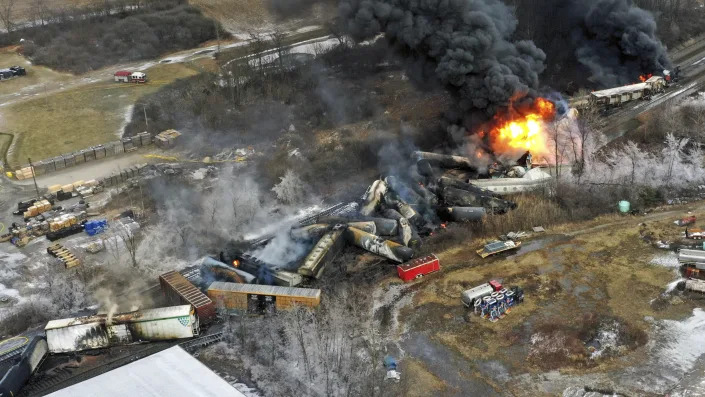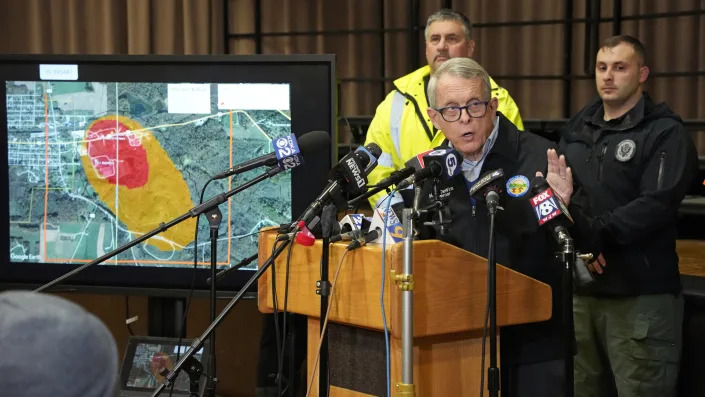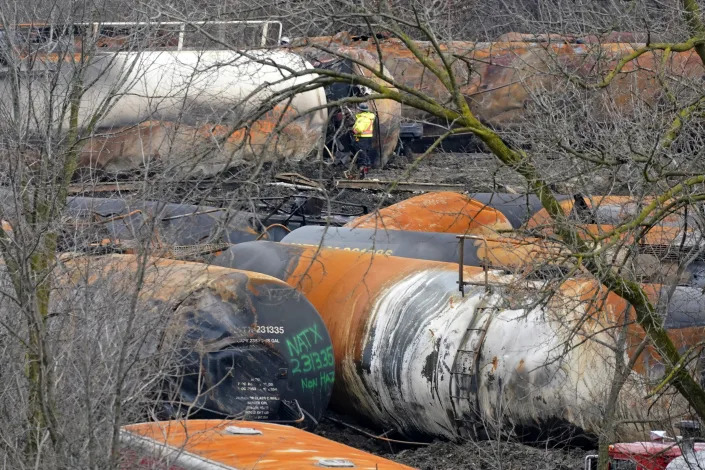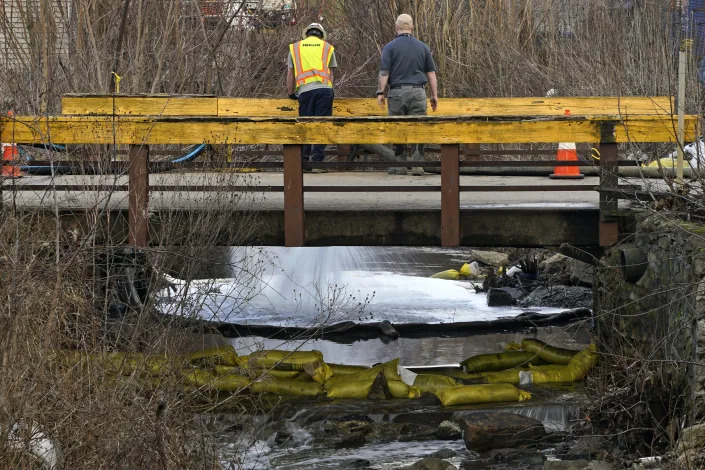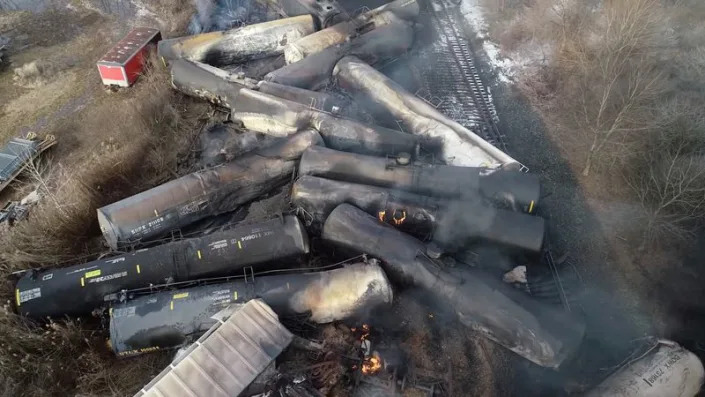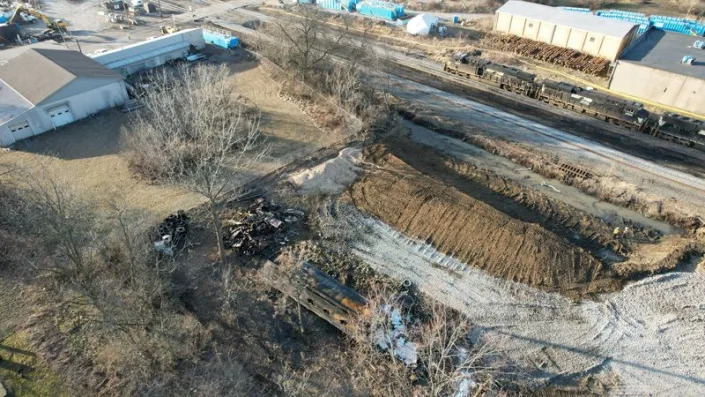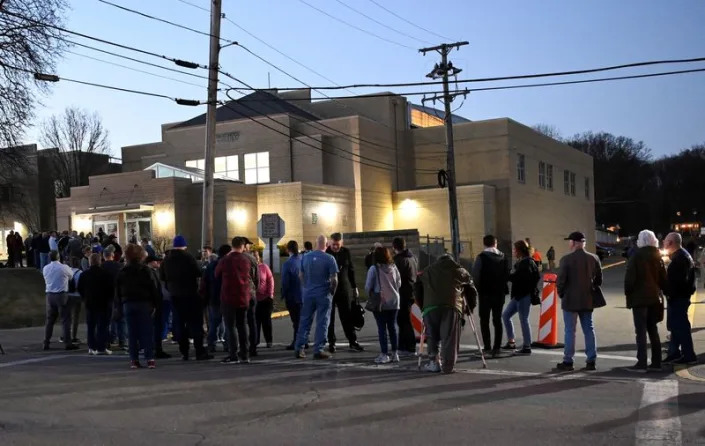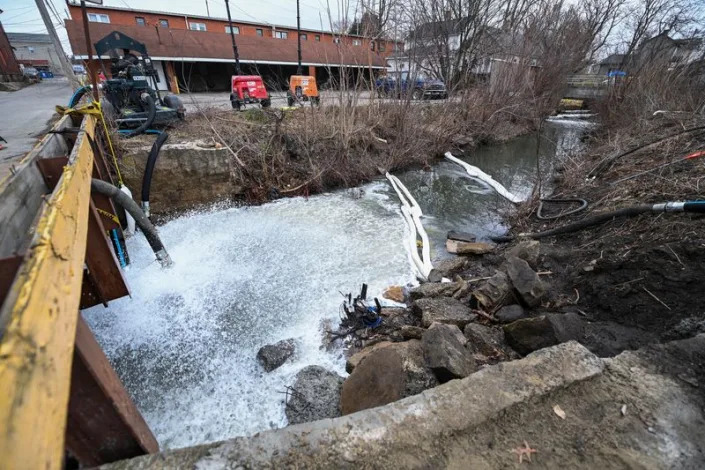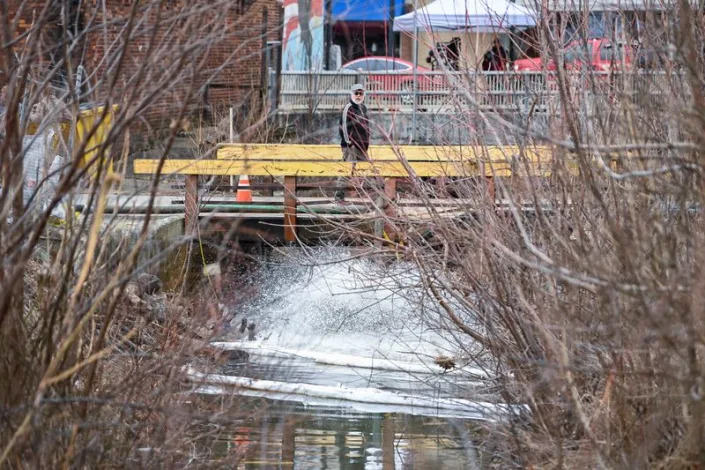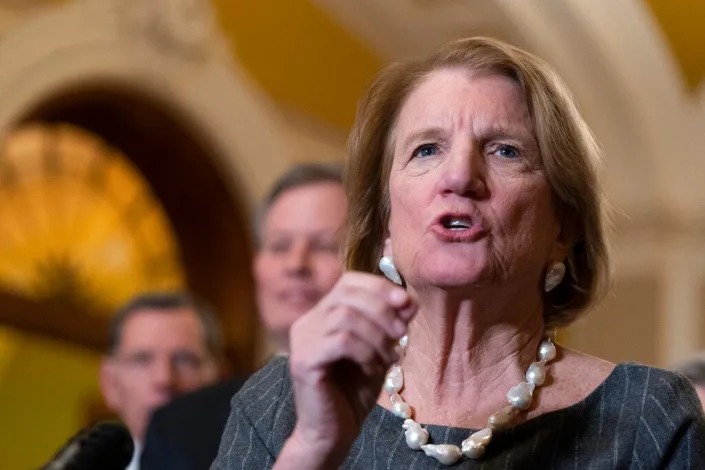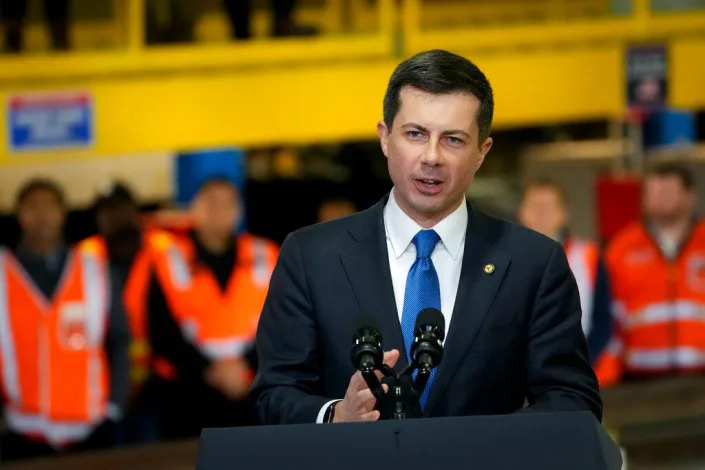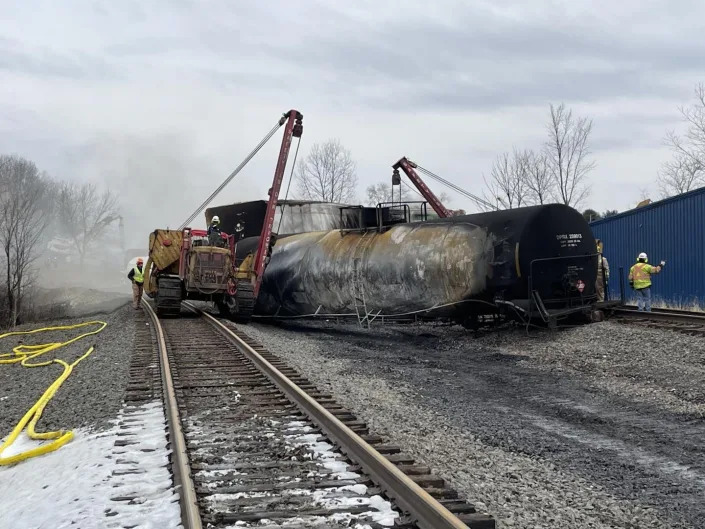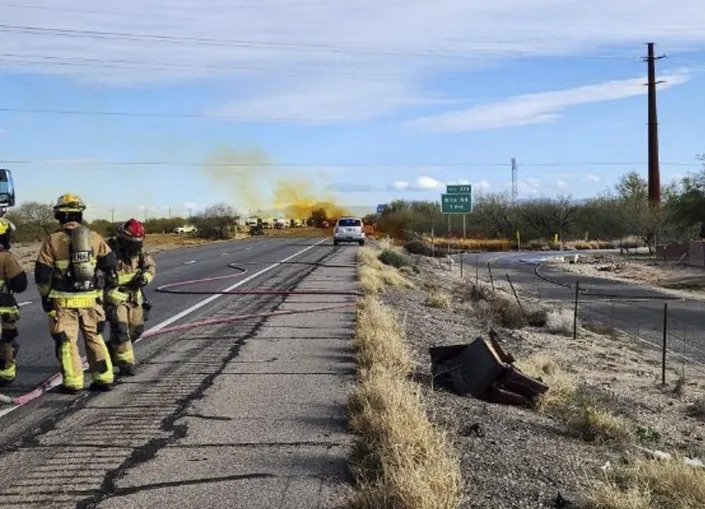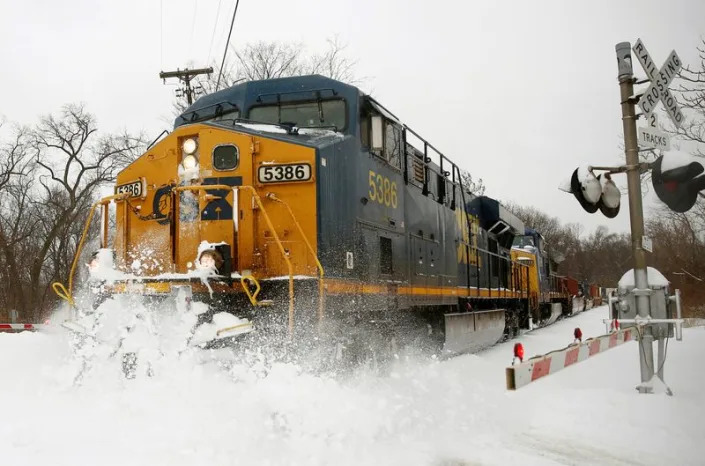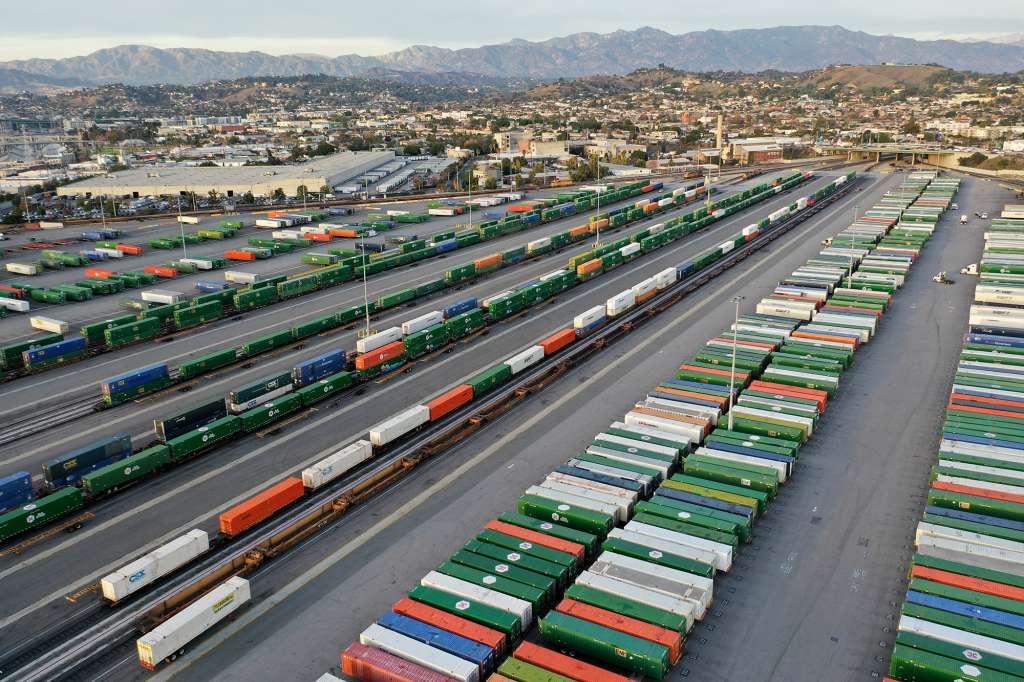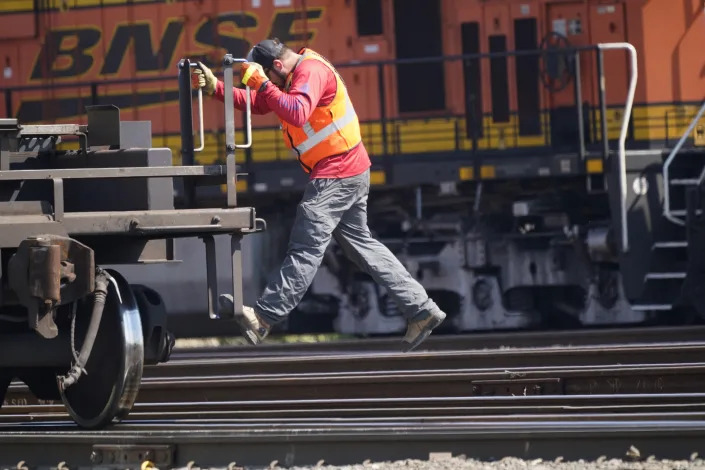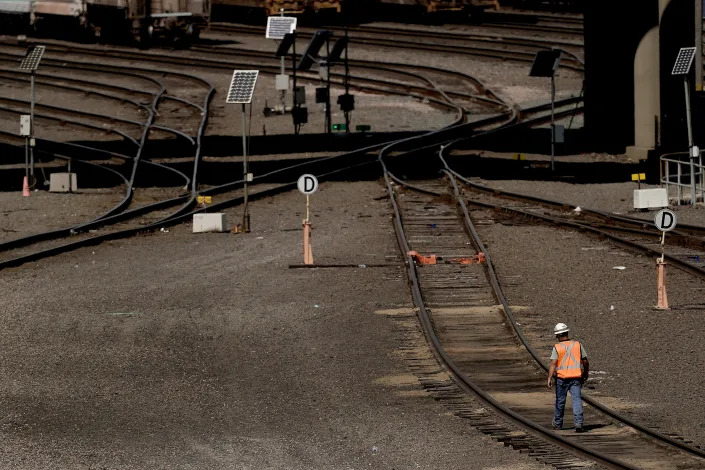Railroads propose safety reforms after fiery Ohio derailment
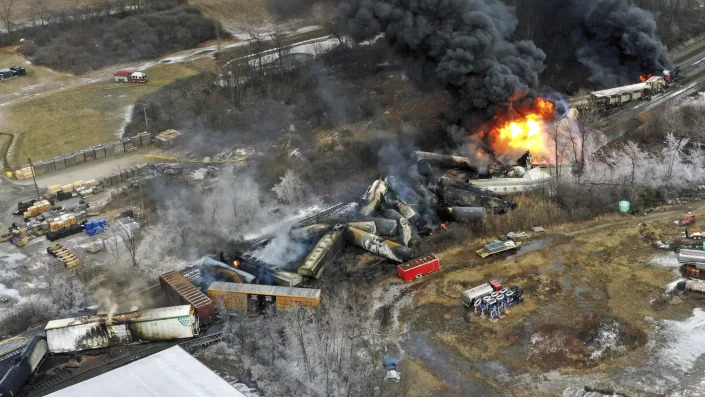
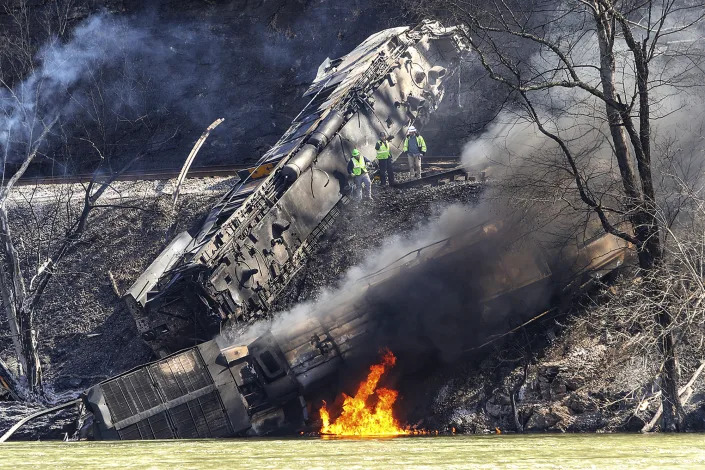
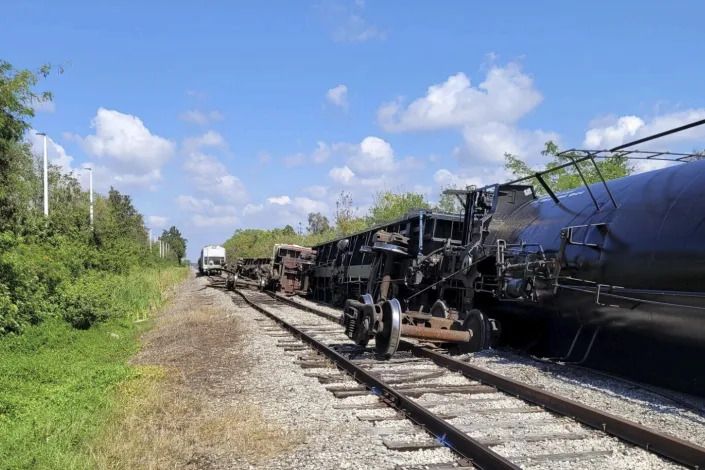
Train Derailment Florida
JOSH FUNK
Wed, March 8, 2023
OMAHA, Neb. (AP) — The major freight railroads announced a number of steps Wednesday that they are taking to improve safety in the wake of last month’s fiery Ohio derailment, but it’s not clear if their actions will be enough to satisfy regulators and members of Congress who are pushing for changes.
Many of the proposals from the Association of American Railroads trade group focus on strengthening the network of trackside detectors that railroads use to spot problems before they can cause derailments. The railroads plan to do this by installing 1,000 more of the detectors nationwide and tweaking the way railroads use the data from them.
Norfolk Southern, the railroad responsible for the Feb. 3 derailment in East Palestine, Ohio, near the Pennsylvania border, proposed similar changes earlier this week, but the Federal Railroad Administration responded saying the company wasn't doing nearly enough.
And several members of Congress — led by Ohio's two senators — have proposed a sweeping package of rail reforms that go well beyond what the industry is proposing. Transportation Secretary Pete Buttigieg has also urged the railroads to make immediate changes.
Federal regulators didn't immediately respond Wednesday to questions about the industry's proposals. Congress plans to scrutinize Norfolk Southern's safety record and its response to the Ohio derailment at a Senate hearing Thursday morning that will also examine the reforms Ohio's senators proposed. Two federal agencies also announced broad investigations into Norfolk Southern's safety record Tuesday.
Overall, railroads are proud of their safety record, which reflects a decline in derailments over the past several years, and they like to tout the statistic that 99.9% of all hazardous materials shipments railroads handle reach their destinations safely. Still, there were 1,049 derailments nationwide last year — and the East Palestine one showed how even a single mishap involving hazardous materials can be disastrous.
“Rail is indisputably the safest way to move dangerous commodities,” AAR President Ian Jefferies said. “Yet we fully appreciate that these data do not comfort the residents of East Palestine and that public trust must be restored through action."
The major freight railroads — which include Norfolk Southern, CSX, Union Pacific, BNSF, Canadian Pacific, Kansas City Southern and Canadian National — said they will tighten up the spacing between the hot-bearing detectors to ensure they average no more than 15 miles (24 kilometers) apart along the main routes they use to transport hazardous chemicals. Currently, there are no federal rules on those detectors, which can be spaced up to 40 miles (64 kilometers) apart in places, though most of them are much closer together.
Rail safety expert Allan Zarembski said the existing network of detectors was already quite effective and allowed only a handful of derailments every year related to overheating bearings. But these changes will undoubtedly catch even more of these problems, said the University of Delaware professor who leads the railroad engineering and safety program there.
Zarembski said he believes these changes are likely to be “pretty effective.”
The railroads said they will also commit to stopping and inspecting any train that has a bearing that registers more than 170 degrees above the outside temperature. That’s in line with the standards Norfolk Southern already uses.
The National Transportation Safety Board has said the Norfolk Southern crew received a warning about an overheating bearing just before the derailment but wasn’t able to stop the train before 38 cars, including 11 carrying hazardous materials, jumped off the tracks and caught fire. About half the town of East Palestine — about 2,500 residents — had to evacuate a couple days later because officials were worried that five of the cars carrying vinyl chloride might explode. They then released the chemical and burned it off.
In addition to stopping trains anytime a bearing exceeds 170 degrees, the railroads also analyze the data from sensors all across their networks to identify problems even before a bearing hits that threshold. The trade group said all the major railroads plan to discuss ways to improve that analysis by the end of March.
The railroads said they also plan to train about 20,000 first responders nationwide this year to deal with hazardous materials incidents. As part of that, Norfolk Southern announced plans Wednesday to build a new regional training center in Ohio. Gov. Mike DeWine praised the effort.
“The derailment in East Palestine made clear that ensuring first responders are prepared for disasters involving hazardous materials is vitally important to the safety of communities,” DeWine said. “Often, first responders are volunteers, and their need to have the most up-to-date training and equipment is vitally important."
